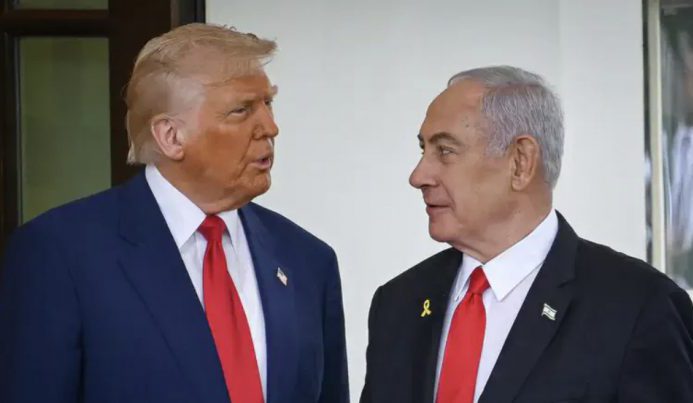Recognizing Hashem as the Creator transforms our understanding of the world, defines Jewish faith, and establishes Israel’s eternal, divine right to its land.
I Believe — With Complete Faith
“I believe with complete faith that G-d created and rules all of creation and that He alone made, makes, and will make all things.”
(Maimonides, 1st Principle of Faith)אני מאמין באמונה שלימה שהבורא יתברך שמו הוא בורא ומנהיג לכל הברואים והוא לבדו עשה עושה ויעשה לכל המעשים.
This opening declaration is not just theology — it is the beating heart of Judaism. It is where Judaism begins.
To believe that Hashem created the world is to understand that nothing exists outside His will — not nations, not land, not even human choice. Creation is not merely the start of history; it is the foundation of all meaning.
Hashem: The Owner of All
Recognizing Hashem as the Creator means recognizing Him as the Owner — of the universe, the land, its wealth, and even mankind itself. Nothing we “own” is truly ours; it is only entrusted to us for divine purpose.
1️⃣ The Land: Eretz Yisrael
Rashi opens the Torah with creation to establish Israel’s divine claim to its land.
When the nations accuse Israel of theft, we respond:
“Hashem created the world — and He gives it to whom He chooses.”
Every grain of Eretz Yisrael belongs to Him. We are not invaders; we are the rightful heirs of the Divine promise. The land’s holiness is not political — it is ontological.
Even halachically, this truth echoes through the laws of Yovel. We cannot sell land permanently because “the land is Mine,” says Hashem — we are merely subletters.
[clt] The land is Hashem’s; we are merely subletters. [clt]
2️⃣ The Contents: Wealth, Work, and Worship
King David understood this when he gathered offerings for the Beit HaMikdash:
“For everything is from You, and from Your hand we have given to You.”
The phrase “v’yikchu li terumah” — take for Me an offering — reveals that even our giving is an act of returning. When we donate, serve, or sacrifice, we are not giving our resources; we are returning His.
Our possessions, talents, and time are divine deposits — meant to be used in holiness.
3️⃣ Man Himself: Created and Owned by Hashem
Humanity, too, is part of Hashem’s ownership.
Rabbi Elazar Ish Bartuta declared:
“Give Him what is His, for you and all that is yours are His.”
Our lives are not our property — they are Hashem’s trust.
The Radvaz used this truth to explain why no person may condemn himself to death: one cannot dispose of what he does not own.
Similarly, Be’er HaGolah warns that neglecting one’s health insults the divine purpose of creation. Life is sacred because it is not self-generated — it is a loan from the Creator.
Rav Aharon Lichtenstein applied this principle to modern moral confusion, rejecting the cry of “My Body, My Choice” as anti-Torah.
He taught that autonomy without acknowledgment of the Creator is spiritual idolatry — a modern echo of Pharaoh’s arrogance:
“My Nile is mine; I made it for myself.” (Ezek. 29:3)
A person does not own himself — he is owned, loved, and guided by G-d.
Our Recognition: Daily and Eternal
Every Yom Rishon, as we recite “LaHashem ha’aretz u’meloah, tevel v’yoshvei vah”, we reaffirm that Hashem owns both the framework (earth and world) and its contents (everything and everyone).
From the first day of creation until today, we live in a world that is entirely His.
Before we eat, we bless — not merely in gratitude, but in acknowledgment that only Hashem’s permission allows us to partake of His world.
Every berachah is a renewal of our recognition of His mastery.
In Shemoneh Esreh, we declare Him “koneh hakol” — the One Who acquires all.
That phrase is not poetic — it is the axis of our relationship with Him.
The Foundation of All Law
Hashem’s ownership also grants Him the right to command.
As Rabbi Jonathan Sacks explained:
“The Torah is not a book of science but of law.
The question it answers is not ‘How was the universe born?’ but ‘By what right does G-d command humanity?’
The answer: because He created it — and therefore owns it.
G-d rules not by might, but by right — the right of a Creator over His creation.”
This transforms creation from a story into a constitution.
Every mitzvah, every moral law, every covenantal duty flows from this truth:
The world belongs to G-d.
We exist by His will and live best when aligned with it.
From Creation to Covenant
Our relationship with Hashem did not begin at Sinai or Egypt.
It began in Bereishit, with the words, “In the beginning, G-d created the heavens and the earth.”
Creation is the first commandment — the command to believe, to recognize, and to live as creations serving the Creator.
May our awareness of Hashem as the world’s true Owner inspire us to live lives of faith, gratitude, and divine purpose — in His land, with His people, under His law.





